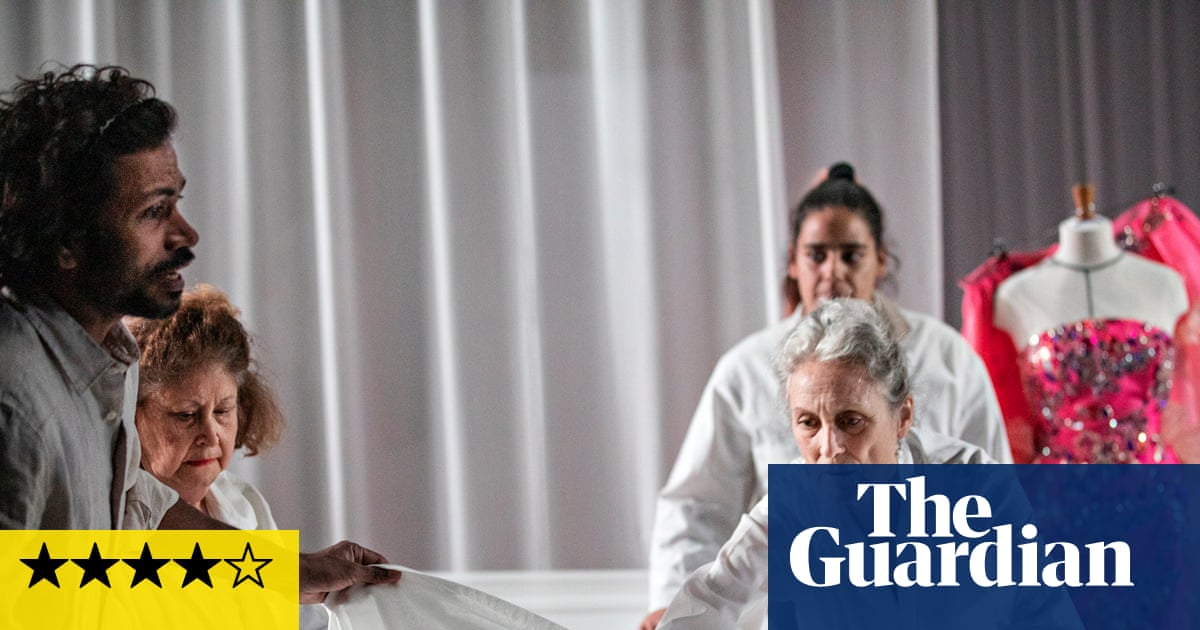
"A three-hour durational show with a three-minute pause rather than an interval is a daunting prospect. However, Lacrima gathers its pace meditatively before it begins to hurtle and then becomes devastating viewing from which you can't look away. The marriage of an unnamed British princess has been announced and the making of her wedding dress, by a British designer, is under way. He enlists a Parisian atelier that outsources its most labour-intensive work to an Indian tailor."
"Using four languages, with English surtitles, the production initially seems like a documentation of processes and the invisible labour involved in such an illustrious commission. We variously follow Marion (Maud Le Grevellec), head seamstress at the Paris workshop, a group of lace-makers in France, and the ageing tailor, Abdul (Charles Vinoth Irudhayaraj), who works quietly, relentlessly, with needle and thread. There are video calls with the princess and interviews with French lace-makers who speak of inheriting their dying craft."
"Written and directed by Caroline Guiela Nguyen, the human drama emerges to take gradual hold until it is a chokingly emotive story of overwork and enslavement. Scenes of Marion's abusive marriage to Julien (Dan Artus), an insecure pattern-maker at the workshop, are masterfully enacted and horrifying in their realism. The sight of Abdul, who sits sewing pearls on to the dress's train, slowly going blind through the intensity of the work, is deeply moving."
A three-hour stage piece traces the making of an extravagant wedding dress commissioned for an unnamed British princess. The dress, constructed from embroidered silk, handmade lace and a 200-metre train of 150,000 pearls, involves a British designer, a Parisian atelier and an Indian tailor. The narrative follows Marion, the Paris head seamstress; French lace-makers preserving a dying craft; and Abdul, an ageing tailor who slowly goes blind from relentless, meticulous work. Multilingual scenes, video calls and institutional exchanges reveal unequal codes of conduct, intense overwork, devotion, conflict and the human cost of celebrated craftsmanship.
Read at www.theguardian.com
Unable to calculate read time
Collection
[
|
...
]